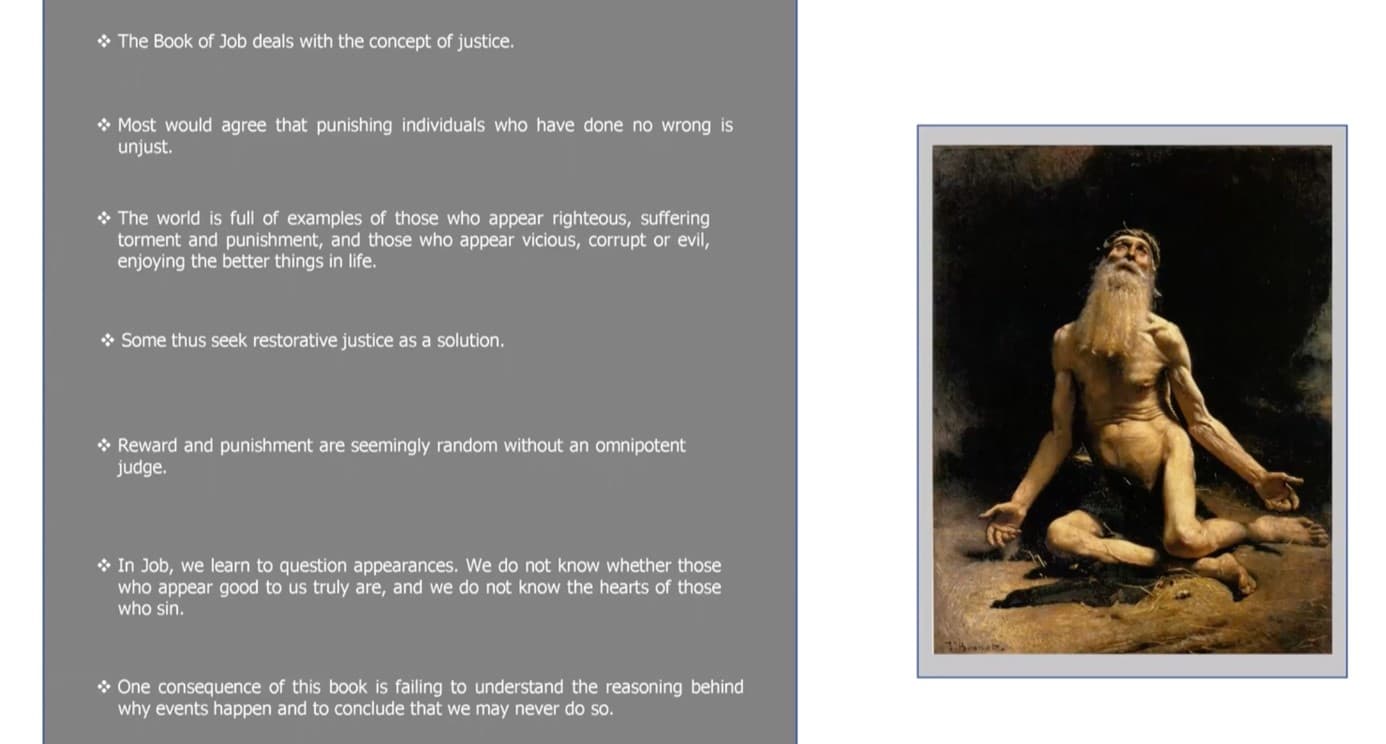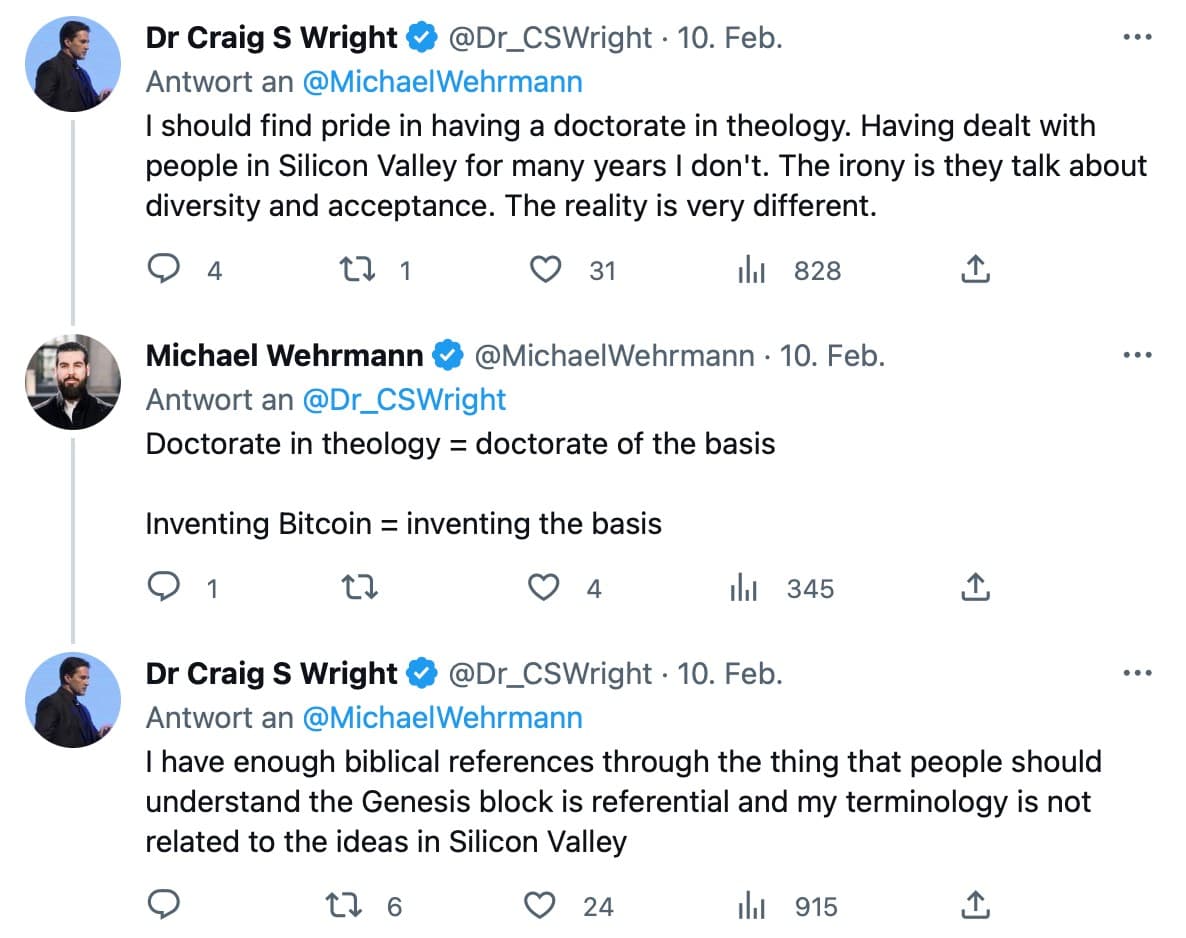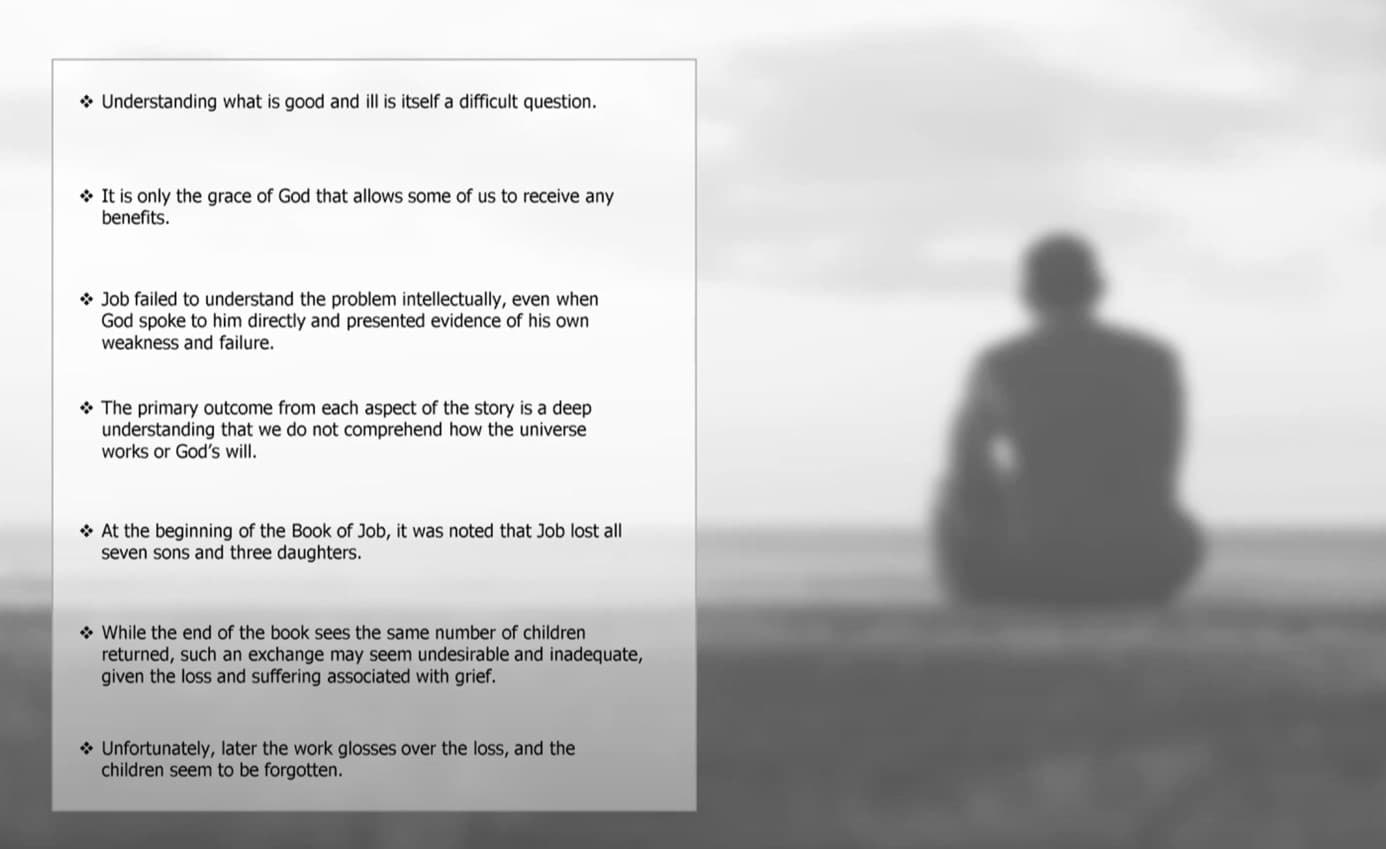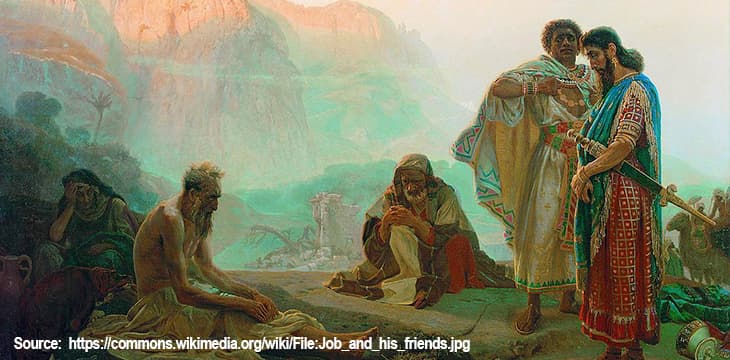In the most recent philosophy class of Dr. Craig Wright, the course participants delved into the topic of wisdom literature. Specifically, the Book of Job was discussed.
Table of contents for this episode:
I. Introduction
II. Wisdom literature
III: The construction of the Book of Job
IV. A complex answer to a simple question
V: Can the divine be seen in that which is human
Book of Job: Near-death experience and almost unbearable suffering allowed by God?
The Book of Job is a complex book with the main question of why and how hardships led by the divine happen to seemingly righteous people. Job is introduced as a person that seems to follow the Old Testament’s way of God but is facing tremendous “strokes of fate.” However, the reader gets the information that Job is subject to an argument between God and Satan.
God seems to allow Satan to cripple Job’s life in various ways, while Job has no insights into what is being discussed “above” about him. For Job, his life turns into a nightmare, and even his wife suggests cursing God for what happens to him.
Dr. Wright described the Book of Job as one of the most important Jewish wisdom books of the Old Testament, which captured the different investigations into the philosophy of wisdom at those ancient times:
If we look at Job, we really have three parts. We have an introduction, and we have a conclusion that are really prose, but a poetic center of the story that is designed in such a way that it can be read and memorized by a lot of people.
(…)
We have a book that is really telling us how much we fail to understand not only God, but the purpose of the world, and a conclusion of all of this in Job in the end – even though he has direct conversations with God – is that we will never know.

Old Testament wisdom, Dr. Wright’s dissertation, and Bitcoin
In the philosophy class, Dr. Wright also explained the various sources of wisdom to be found in the Old Testament besides the Book of Job. For example, the Psalms and Proverbs seem to assist the reader in how to live their best lives.
Dr. Wright gave a personal example of his own. In his twenties, Dr. Wright was diagnosed with cancer, and not only that, he was told by the doctors that if he would not have an operation as soon as possible, he could be dead in six months:
And I literally had an operation the next day. (…). It changed my attitude to life. (…) Every day became important to me.
After that, Dr. Wright has been working as a pastor and finished his dissertation in theology. Concerning Dr. Wright’s dissertation titled “Gnarled roots of a creation mythos,” he plans to release it fully soon. There is also quite an interesting connection to Bitcoin here:

Genesis block, think about it. Furthermore, it is interesting that Dr. Wright’s dissertation had the title “Gnarled roots of a creation mythos,” published in 2003—and decades later, the roots of Bitcoin’s creation mythos seem gnarled, too—to say the least.
God’s chat with the devil in the Book of Job
In the philosophy class, Dr. Wright confronted the participants with the observation that it may seem off for God to literally “chat” with the devil about Job’s life—and allow the devil to intervene in seemingly unbearable ways.
Worse than this chat is the chat Job has with his “friends” that try to advise him. Job is hearing different humanly perspectives on what happened to him. However, no answer from his friends seems sufficient.
Then God has a chat directly with Job. This chat is more of a presentation by God, though, and God seems not amused. Dr. Wright commented:
God goes on, talks about the wonders of creation, asks Job: Can you build this? (…). The design of divine reward and punishment, how the universe is constructed, why and what the purpose is – well, we can make hypothesis, and there is no actual way of testing it.
One cannot read the Book of Job and come out of it with true comfort. However, Job is kind of better off in the end, at least it appears this way, as God blesses him, basically repairing the allowed damages. And keep in mind Job has had a private chat with God himself. That is not bad, but unique, isn’t it?
One participant argued that God is not evil, but simply testing Job. Another participant added that specifically, Job’s ego was being probed. Dr. Wright interacted with the participants, and a lively discussion started.

More philosophy classes by Dr. Craig Wright are coming soon
These courses provide a unique insight into Dr. Wright’s diverse research interests beyond his work on Bitcoin. Whether you’re a seasoned philosopher or a newcomer to the field, these classes will surely broaden your horizons and deepen your understanding of various philosophical topics.
If you’re interested in joining the upcoming classes, please contact Joel Dalais from the MetaNet ICU or Brendan Lee from Elas for further information on how to sign up. And if you missed any of the previous 14 episodes, don’t worry—each one is available on a publicly accessible YouTube playlist.
Watch: Craig Wright / Satoshi Nakamoto (interview) – On education
New to blockchain? Check out CoinGeek’s Blockchain for Beginners section, the ultimate resource guide to learn more about blockchain technology.










